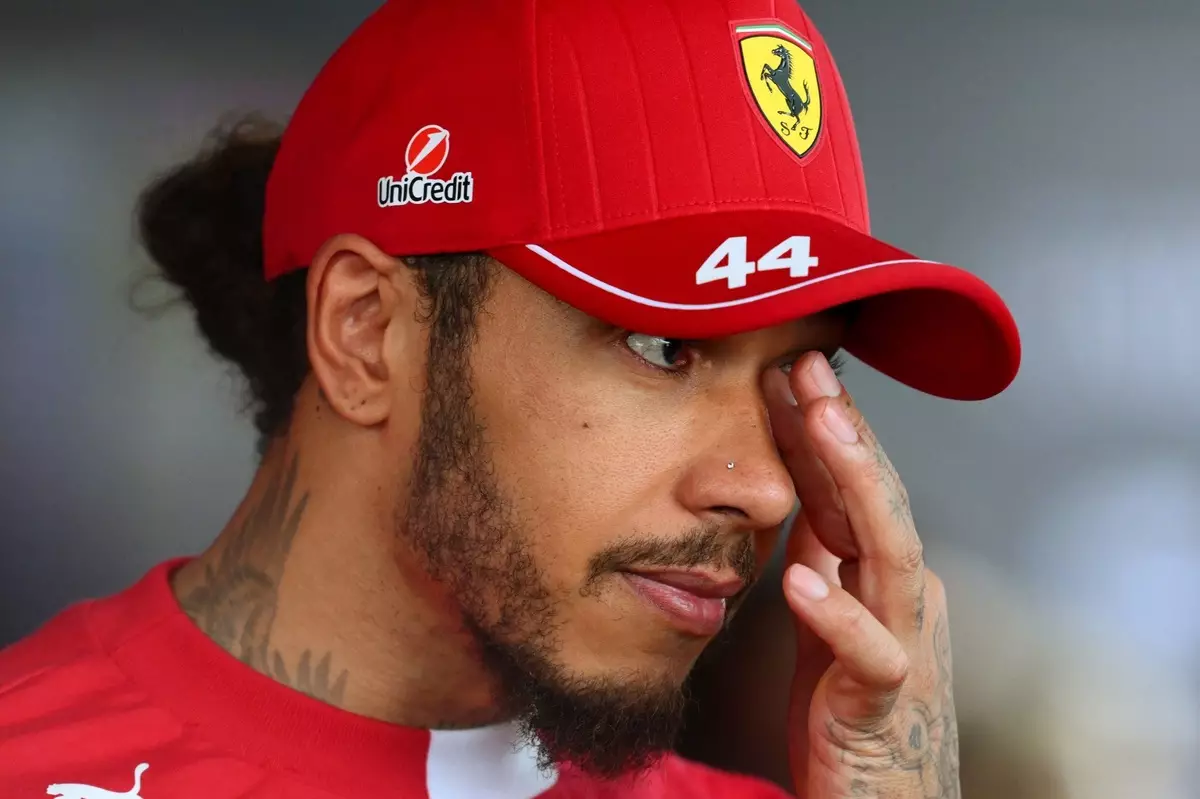Lewis Hamilton, a driver whose career boasts unmatched achievements and relentless determination, faced an uncharacteristically tough weekend at the Hungarian Grand Prix. From a disappointing qualifying session that saw him eliminated in Q2, to a race where months of hard work seemingly unraveled in traffic and mechanical setbacks, Hamilton’s frustration was palpable. While his team principal, Fred Vasseur, offers reassurance and a rational perspective, the reality remains that a driver of Hamilton’s caliber does not flourish when bogged down by such setbacks. Yet, that very adversity is what tests not only a driver’s skill but their mental fortitude.
What is truly striking here is Hamilton’s self-criticism and visible disappointment. It’s a reminder that even the most accomplished athletes are not immune to emotional turbulence. While some may interpret his comments as signs of capitulation, I see them as a reflection of his unyielding pursuit of excellence. The harsh truth is, failure is often the finest teacher—if approached with the right mindset. Hamilton’s willingness to voice his frustrations openly signals his commitment; he doesn’t shy away from acknowledging where improvements are needed. In the realm of elite motorsport, such vulnerability can be a catalyst for growth if steered correctly.
The Perspective: Vasseur’s Practical Approach to a Tough Week
Fred Vasseur’s comments reveal not just his support for Hamilton but also a profound understanding of the pressures that come with racing at the highest level. Vasseur emphasizes that Hamilton remains motivated, despite the storm of criticism and disappointment, framing the driver’s reactions as normal under these circumstances. His assertion that Hamilton is demanding—both with himself and his team—is not merely a courtesy but a testament to Hamilton’s relentless pursuit of perfection.
Vasseur subtly highlights an important truth: in racing, results often hinge on marginal gains and split seconds. Hamilton’s elimination in Q2 was not necessarily a failure of effort but a consequence of tight margins and the unpredictable nature of qualifying. Here, the team’s ability to analyze, adapt, and improve will determine whether Hamilton can rebound. The focus shouldn’t solely be on the immediate disappointment but on the long-term resilience. A driver like Hamilton, who has repeatedly demonstrated the capability to bounce back from setbacks, embodies the very spirit that makes racing great.
The Bigger Picture: Why Hamilton’s Drive Will Ultimately Prevail
This week’s setbacks, while deeply frustrating, are unlikely to define Hamilton’s career or his future. History shows that resilience is the hallmark of champions. His track record of overcoming adversity signals that this tough patch is merely a chapter in a much larger narrative of persistence and growth. Hamilton’s intensity and demand for excellence, often criticized as excessive, are in fact the engine powering his relentless pursuit of victory.
The emotional reactions he displayed are, in essence, a mirror of his deep passion—an attribute that separates true champions from temporary winners. His stinging self-criticism might be uncomfortable to observe, but it keeps him grounded and hungry for improvement. It is that hunger, driven by a desire to refine every aspect of his craft, that will ensure he returns stronger.
Furthermore, in a sport where innovation and adaptation are paramount, Hamilton’s mental toughness and unrelenting work ethic give him an edge. His capacity to learn from failures, rather than be crushed by them, is what elevates him beyond mere talent. If history is any guide, moments of hardship often precede spectacular comebacks. Expectations are high, but Hamilton’s resilience is higher.
The Road Ahead: Embracing Challenges as Fuel for Future Success
While this weekend’s result was undoubtedly a setback, it underscores a vital truth in racing: setbacks are catalysts for growth. Hamilton’s passion and fierce ambition can be turned into fuel if channelled wisely. The key is not how many times he falls but how swiftly and effectively he rises.
In my view, Hamilton’s true strength lies in his unyielding belief that he can always do better. His dissatisfaction now is a sign of healthy self-awareness, not weakness. It signals that he recognizes the gaps and is motivated to close them. The internal struggle he experiences is not a sign of failing but of the relentless drive that has made him one of the greatest drivers of all time.
As the season progresses, Hamilton’s resilience and dedication will be put to the ultimate test. If history is any indicator, such testing moments often serve to sharpen a champion’s edge. Hamilton’s past triumphs prove that he learns, adapts, and overcomes adversity—traits that will serve him well moving forward. The true victor will be the one who, despite the setbacks, refuses to relinquish their pursuit of greatness. And in this, Hamilton remains not only a contender but an embodiment of unbreakable spirit.
Despite the storms of disappointment this weekend, the fire within Hamilton remains undiminished. His journey is far from over, and if his past is any guide, his resilience and willpower will ultimately lead him back to the summit.


Leave a Reply